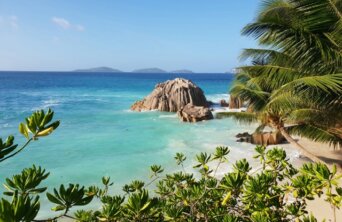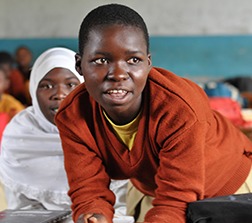- About
- Topics
- Story
- In-Depth
- Picks
- Opinion
- News
- Donate
- Signup for our newsletterOur Editors' Best Picks.Send
Read, Debate: Engage.
| topic: | Child rights |
|---|---|
| located: | The Seychelles |
| editor: | Bob Koigi |
Africa is home to the youngest population in the world. Its burgeoning population is estimated to reach 1 billion by 2055. While this presents an excellent opportunity for the continent to reap the demographic dividends and leverage its human capital, it also poses challenges to ensuring the youthful population has access to quality and inclusive education that responds to the needs of the 21st century.
Investing in education is pivotal for tackling poverty, addressing gender and social inequalities and creating prosperous nations.
The African Union, in its economic blueprint Agenda 2063, is betting on young people to drive its vision through a modern skillset that can only be gained through education.
Yet, it hasn’t been a smooth road for the continent’s education system. Despite landmark achievements that have been made in the recent past to reduce the rate of dropouts and improve access and quality, the continent is grappling with inequalities and exclusion.
In Sub-Saharan Africa, for example, over one-fifth of children aged between 6 and 11 years are not attending school, while a third of young people between 12 and 14 years are also not accessing education.
Moreover, 9 million girls and 6 million boys from 6 to 11 years old will never attend school due to various socio-economic and political factors. Schools are grappling with a shortage of teachers, and Sub-Saharan Africa will need 17 million additional teachers to achieve universal primary and secondary education by 2030.
Alive to the current situation, the African Union (AU) has declared 2024 the year of education, focusing on: "building resilient education systems for increased access to inclusive, lifelong, quality, and relevant learning."
The theme is inspired by the institution's importance on education as a human rights issue and a pedestal to propel the continent into social and economic development.
The AU hopes to mobilise governments and development partners to remodel the continent’s education system to respond to modern needs while addressing learning poverty.
As the focus intensifies on ensuring access to inclusive education in Africa, the Seychelles has emerged as a trailblazer in ensuring access to quality education for all as a fundamental human right. Through deliberate planning, political will, and public-private partnership, the island nation’s education sector has been a model for the continent and globally.
It is the best-ranked country for education in Africa and the only African country to feature in the top 50 education systems in the world.
The country has made deliberate efforts to improve the quality of education by boosting teacher training and promoting curriculum relevance.
The lion's share of the Seychelles national budget, between 9 and 19 per cent, is allocated to education. Out of the 13 levels of schooling offered to school-going children, 10 are compulsory, among them early childhood care, primary, secondary and vocational education.
The country has met all the six goals of the Education for All initiative introduced by UNESCO, achieving a 50 per cent improvement in levels of adult literacy, ensuring that all children have access to free compulsory primary education and achieving gender equality in education. Little wonder then that the literacy level is over 90 per cent.
As Africa trains its eyes on 2024, the year it will fix its education system and leave no child behind, governments and education players should look inward to Seychelles for inspiration.
Image by Christian Cacciamani.

